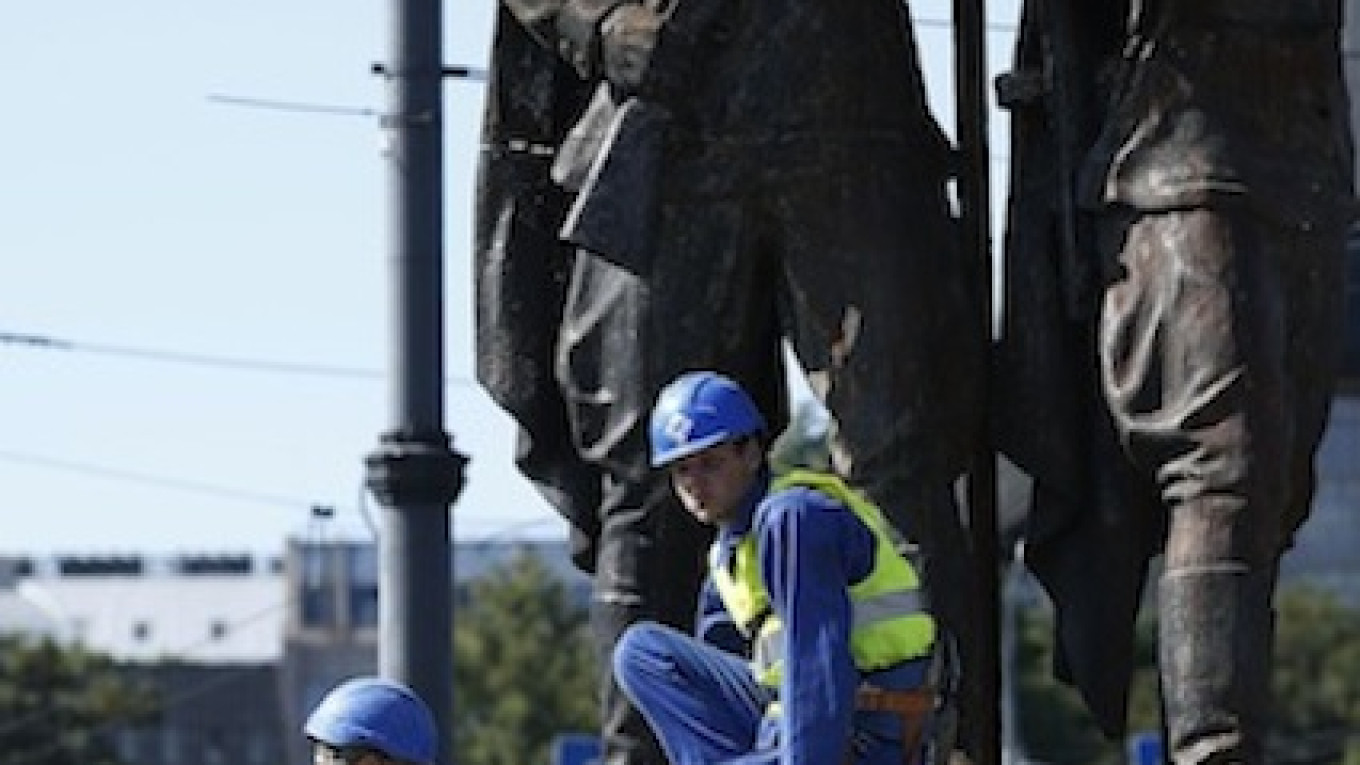VILNIUS — Workers started dismantling monumental statues of soldiers, students, laborers and farmers in Lithuania's capital early on Monday, the last major Soviet artworks in a city now on the eastern frontier of the European Union and NATO.
Cranes began hauling them off plinths after midnight, a quarter century after the Baltic state re-emerged from the wreckage of the Soviet Union, a highly charged demolition job as Lithuania faces fresh tensions with its neighbor Russia.
"The statues represent a lie. Their heroic portrayal of the Soviet people — that is all a lie … The statues are a mockery of the real people who had to live during the Soviet period," Vilnius Mayor Remigijus Simasius told Reuters before the first monument, a pair of soldiers, came down in a metal cage.
Lithuania, together with other Baltic and east European states, has been on edge since Russia annexed Ukraine's Crimea region in March last year and was accused of backing separatists in Ukraine's east.
But city authorities said the now-aging statues — four pairs of people — were removed primarily for health and safety reasons, not politics, and the soldiers had gone first because they were the most dilapidated.
"I do not intend to spend public money to renovate them and to bring them back," Simasius said.
Overtly political statues of Lenin and other figures in Lithuania disappeared after the Soviet Union collapsed. Rock fans persuaded the city to build a monument to musician Frank Zappa instead, seeing his experimental work as a symbol of freedom after communism.
But the four pairs of statues — erected in 1952, shortly after Soviet forces largely stamped out armed Lithuanian resistance against the country's annexation — stayed in place on a central bridge. Locals say it was partly a mark of respect for the Lithuanian artists who carved them.
Most of the other Soviet monuments have been moved to a political theme park, though the mayor said he had not decided what to do with the bridge monuments.
A Message from The Moscow Times:
Dear readers,
We are facing unprecedented challenges. Russia's Prosecutor General's Office has designated The Moscow Times as an "undesirable" organization, criminalizing our work and putting our staff at risk of prosecution. This follows our earlier unjust labeling as a "foreign agent."
These actions are direct attempts to silence independent journalism in Russia. The authorities claim our work "discredits the decisions of the Russian leadership." We see things differently: we strive to provide accurate, unbiased reporting on Russia.
We, the journalists of The Moscow Times, refuse to be silenced. But to continue our work, we need your help.
Your support, no matter how small, makes a world of difference. If you can, please support us monthly starting from just $2. It's quick to set up, and every contribution makes a significant impact.
By supporting The Moscow Times, you're defending open, independent journalism in the face of repression. Thank you for standing with us.
Remind me later.


